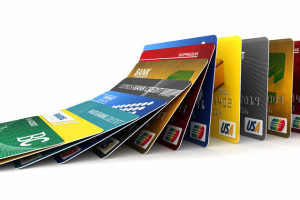February 27, 2013
 Although your bad credit score can sometimes feel like a rain cloud looming over your chances for financial freedom, there are opportunities for the sun to shine through. It’s not all bad news when it comes to your poor credit score, because despite common misconceptions, you can receive a credit card, apply for student loans, and access emergency cash. And the best part of all is that it is always possible to repair your credit score.
Although your bad credit score can sometimes feel like a rain cloud looming over your chances for financial freedom, there are opportunities for the sun to shine through. It’s not all bad news when it comes to your poor credit score, because despite common misconceptions, you can receive a credit card, apply for student loans, and access emergency cash. And the best part of all is that it is always possible to repair your credit score.
Credit Card Options
Applying for a credit card is a great way to build your credit, but unfortunately your bad credit score can limit your credit card options. Don’t be discouraged though, because there are multiple ways in which you can still receive a credit card despite your low score.
People with bad credit often take the secured credit card route. A secured credit card functions much like an unsecured credit, but you pay a security deposit and a monthly fee. You also will most likely experience a lower credit line, which reflects the value of your cash deposit. Only consider this option though if you can pay your monthly dues, otherwise you will very quickly rack up late charges and high interest.
You can also apply for a credit card with a cosigner who has a good credit score. It’s important however that both you and your cosigner understand that if you fall behind on payments, your delinquency will affect not only your credit score, but also your cosigner’s credit score. You won’t want to jeopardize your cosigner’s score on top of your own, so refrain from involving a cosigner if you are unable to make timely payments.
Students Loan Opportunities
Fortunately, you’re not out of luck when it comes to financial aid for higher education. Although you may not qualify for all loans, you do have options.
One option you can turn to is a private student loan through lenders such as Chase, Citibank, and Wells Fargo. In the same way that you can apply for a credit card with a cosigner, most of these lending houses will require a cosigner with an upstanding credit score. In this case, the cosigner agrees to pay for the loan if you fail to make payments. These loans are often associated with higher interest rates though, so only sign on if you understand all of the terms and conditions.
You could also apply for scholarships and grants to receive funds for school. Institutions will award you scholarships based on your athletic or academic performance, while they link grants to your financial situation and need. Scholarships and grants are more attractive options because they are monetary gifts, which you do not repay.
Emergency Loans Access
While your bad credit score will make it difficult to take out traditional loans from banks and lenders, there are bad credit loans, which can help cover life’s unexpected emergencies. Payday Loan lenders usually do not review your credit report, but they do generally expect you to repay the loan by the following payday. Failing to meet payment deadlines will result in expensive fees and high interest, so it is best to only take out this loan if it’s a one time situation, if you understand the terms of the loan, and if you are able to repay the loan.
You Can Always Improve Your Score
It’s never too late to start building your score, and because it can take years to recover from financial delinquency, it’s best to start fixing it now. Begin by repaying any debt that you owe. This may mean contacting your creditors to establish repayment plans, but be sure to demonstrate your willingness to pay back the money.
While you will want to continue using your credit cards to build your credit, use them sparingly and only for small purchases that you are capable of paying on time. In addition to paying your credit card bills on time, you should strive to pay your rent, utilities, and any other bills on or before their due dates as well.
Make a conscious effort to cut back on spending, save money, and consider consulting financial advice if your finances seem unmanageable. Bad credit is not a permanent situation, so take the time to improve it so that you can experience a brighter financial future.
Chloe Mulliner is a writer and editor for several consumer websites related to credit and personal loan options.
Tags:
credit,
Credit Score,
economy,
money,
personal finance,
Repair
February 23, 2013
 There’s a lot of buzz about the implications of bad credit and the importance of maintaining good credit, but many of us are still unclear about certain aspects of our credit reports. How long does a bad payment last on your record? Can you receive a loan with no credit history? And what about your job, is it really legal for an employer to snoop at your credit report? The following top three things you should understand about your credit report will answer all of those pressing questions and more.
There’s a lot of buzz about the implications of bad credit and the importance of maintaining good credit, but many of us are still unclear about certain aspects of our credit reports. How long does a bad payment last on your record? Can you receive a loan with no credit history? And what about your job, is it really legal for an employer to snoop at your credit report? The following top three things you should understand about your credit report will answer all of those pressing questions and more.
1. Bad Credit Will Hang Around
Your credit history from today and two years back accounts for around 70% of your credit report, while the other 30% dates back seven to ten years. Good credit can hang around for around ten years while your last payment delinquency may show up for seven years. This is important to keep in mind, because one bad payment can haunt you for years, despite the fact that you’ve maintained a clean record ever since.
With that being said, your credit score can change on a day-to-day basis for various reasons such as if you apply for a new credit card, declare bankruptcy, or miss a payment. Generally though, your score will not change more than 30 points in one quarter. In addition, your credit score may vary depending on which of the credit bureaus reports your score, as each has their own scoring methods.
2. You Can Still Receive Loans With Bad or No Credit
If you have poor or no credit, there are options available that may prevent banks and lenders from turning down your loan request. eCredable.com, for example, offers you an All My Payments (AMP) credit rating, which takes into account your monthly payment obligations such as rent, utility, and cell phone bills to help establish your creditworthiness. These kinds of payments generally do not show up on the traditional credit bureau reports, but they can provide proof of your payment history. Some, but not all lenders will accept this form of nontraditional credit worthiness.
In the case of an emergency, you can apply for loans for people with bad credit. Typically, these bad credit lenders do not ask to see your credit report, so it usually does not matter if you have bad or no credit. But because payday lenders are taking a risk by supplying you with a loan, they do charge high interest rates and fees. Only apply for a cash advance if it is an emergency situation and if you are capable of paying back the loan in short order. Also, read and understand all of the loan terms before applying.
3. Your Future Employer May Judge Your Credit Score
While it’s not uncommon for credit card companies and landlords to check out your credit report, now potential employers are gathering around to sneak a peek too. And yes, it is perfectly legal for them to do so. A 2010 Society for Human Resource Management survey revealed that 60 percent of employers conduct credit checks on prospective job candidates.
These employers are using your credit score as a judgement of your character and financial reputation. Employers, especially those in financial fields, want to determine your level of monetary responsibility before allowing you to handle company finances.
Even though a bad payment can stick around on your credit record for a while, this should not discourage you from taking strides to improve it. And regardless of whether you can still borrow money from a lender with poor credit, your future employer may want to see your score, so you should always build your score to the best possible number to help prevent any possible obstacles. If you’re still experiencing uncertainty when it comes your credit score, do not hesitate to contact a financial advisor or credit counseling organization.
Tags:
credit,
Credit Score,
Debts,
economy,
financial planning,
loans
June 13, 2012
 Many new business owners think their business credit score is just numbers that fluctuate. Well it is much more, your business credit score can make or break you financially. Your credit score is numbers that tells lenders how well you have been at paying your bills and helps them to determine if they would like to offer you a loan. A low credit score lowers your chances but with a high credit score you are open up great financing options to your business.
Many new business owners think their business credit score is just numbers that fluctuate. Well it is much more, your business credit score can make or break you financially. Your credit score is numbers that tells lenders how well you have been at paying your bills and helps them to determine if they would like to offer you a loan. A low credit score lowers your chances but with a high credit score you are open up great financing options to your business.
What is a Business Credit Score?
Your business’s credit score is number that shows lender just how well you have been at meeting your payments and how heavy your business debt is. Lenders or other agencies looking to do business with you can take a quick look at your business’s credit score and determine if they would like to offer you a loan or what type of loan you would qualify for. Your credit score lets these lenders know if your business is a good risk or not, if your worthwhile to invest in.
The Importance of A Good Business Credit Score
In our ever changing economy lending is not what it once was, today your business needs a high credit score just to be considered for a business loan. The higher your credit score the more financing benefits you will have such as low interest rates, better terms and conditions, larger loan amounts as well as better odds of approval.
How to Maintain A Good Business Credit Score
Keeping track of your businesses finances, not over borrowing and making large payments early or on time is great for your credit rating. Your credit score is based off your business payment history and borrowing history so if your business borrows beyond your means and makes minimum payments late or not at all your credit score is going to suffer. To keep a good clean credit score keep up your finances with on time or early payments for over the minimum amount, then you can sit back and watch your score increase as well as increase your businesses financing options.
Tags:
Business,
credit,
Credit Score,
debt,
financial planning,
money
May 8, 2012
 If you’re striking out on your own for the first time or trying to recover from a bad financial spell, you should start with a good look at your credit report. Your credit rating can either be an imaginary financial halo deeming you a consummate consumer or it can be like a scarlet letter, branding you as a high-risk bet for creditors. To find out which one of these you are, keep reading.
If you’re striking out on your own for the first time or trying to recover from a bad financial spell, you should start with a good look at your credit report. Your credit rating can either be an imaginary financial halo deeming you a consummate consumer or it can be like a scarlet letter, branding you as a high-risk bet for creditors. To find out which one of these you are, keep reading.
Credit scores: Who needs them anyway?
Your credit score is more than just a number. It tells companies and financial institutions how much of a gamble they are taking by lending your money or credit. Because your credit score is a formula that includes factors such as how much debt you currently have, how well you have managed your debt obligations in the past, and what kinds of debt you have, every potential creditor from the phone company to the mortgage lending institution you’ll rely on to finance your home will base their decisions on your rating. Most of the things that you have or wish to have someday — a car, a home, and the financial opportunities you’ll need to enhance your quality of life — depend on those three digits.
The consequences of a bad credit score
You may think that a bad credit score will simply keep you from opening up that second credit card account, but in reality it can affect every area of your life. For example, when you go on a job interview, there’s a good chance that your potential employer will plan to run a credit check on you to determine how responsible you are. Add that to the long list of methods that employers use to weed out the thousands of applicants that they get for each job position.
You’ll also have to shell out more for necessities like insurance and rent. It is common knowledge that your credit score can affect your chances of buying the home that you really want someday, but it can also affect your chances of renting, as well. Many landlords deny leases to would-be tenants based on their low credit scores, and even if you do win that lease with a bad credit score, you’re likely to pay more of a security deposit. A low credit score can make changing addresses more financially draining in other ways, as well. For example, you may find yourself paying higher deposits for basic services like electricity and telephone service.
How to build or improve your credit score
The best way to build or improve your credit score is to pay all of your bills on time. This may seem like a simple enough task, but it is often the mishaps that we don’t plan for that keep us from doing so. To make sure that you can stay financially current, don’t wait until the due date to pay your bills, and remember to save for unexpected emergencies like home and car repairs so that you don’t sacrifice a monthly payment to cover it. You can also improve your credit score by practicing restraint. Don’t open too many lines of credit at once (or at all), and try to keep your debt load low. If you keep these tips in mind, you’ll make financial viability easier to attain.
Tags:
credit,
Credit Cards,
Credit Score,
economy,
financial planning,
money
 Although your bad credit score can sometimes feel like a rain cloud looming over your chances for financial freedom, there are opportunities for the sun to shine through. It’s not all bad news when it comes to your poor credit score, because despite common misconceptions, you can receive a credit card, apply for student loans, and access emergency cash. And the best part of all is that it is always possible to repair your credit score.
Although your bad credit score can sometimes feel like a rain cloud looming over your chances for financial freedom, there are opportunities for the sun to shine through. It’s not all bad news when it comes to your poor credit score, because despite common misconceptions, you can receive a credit card, apply for student loans, and access emergency cash. And the best part of all is that it is always possible to repair your credit score.



Recent Comments